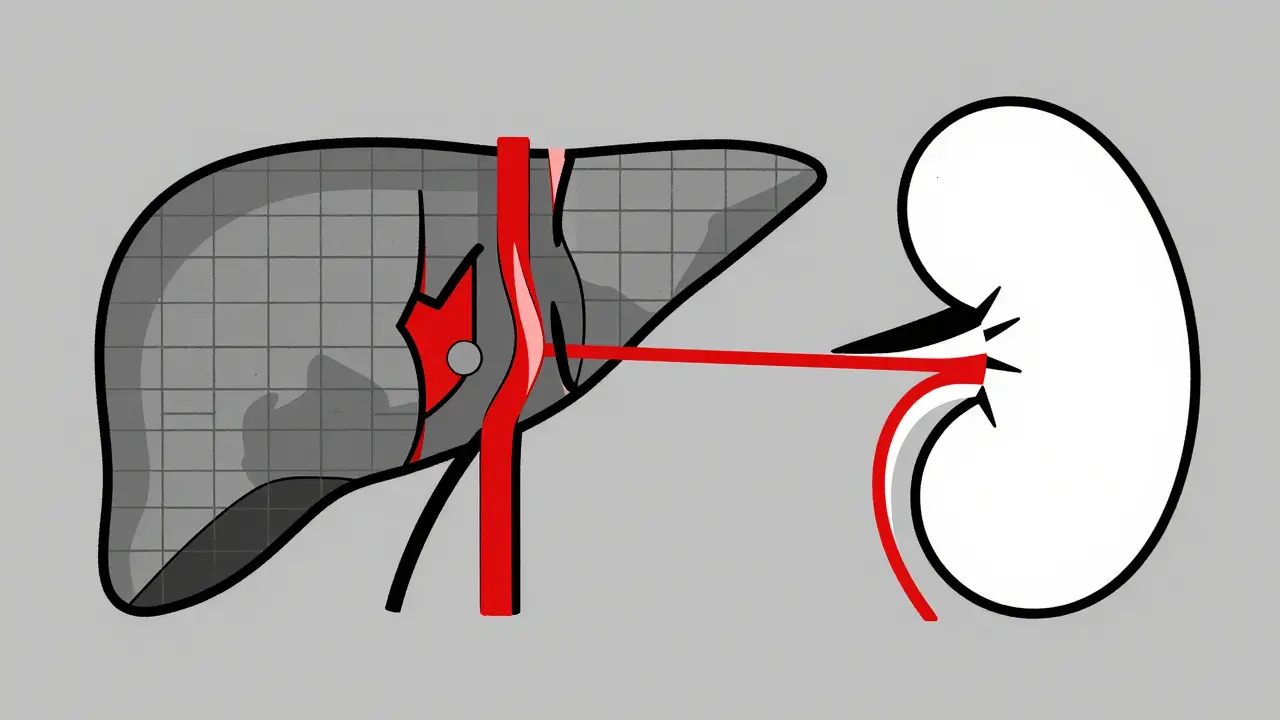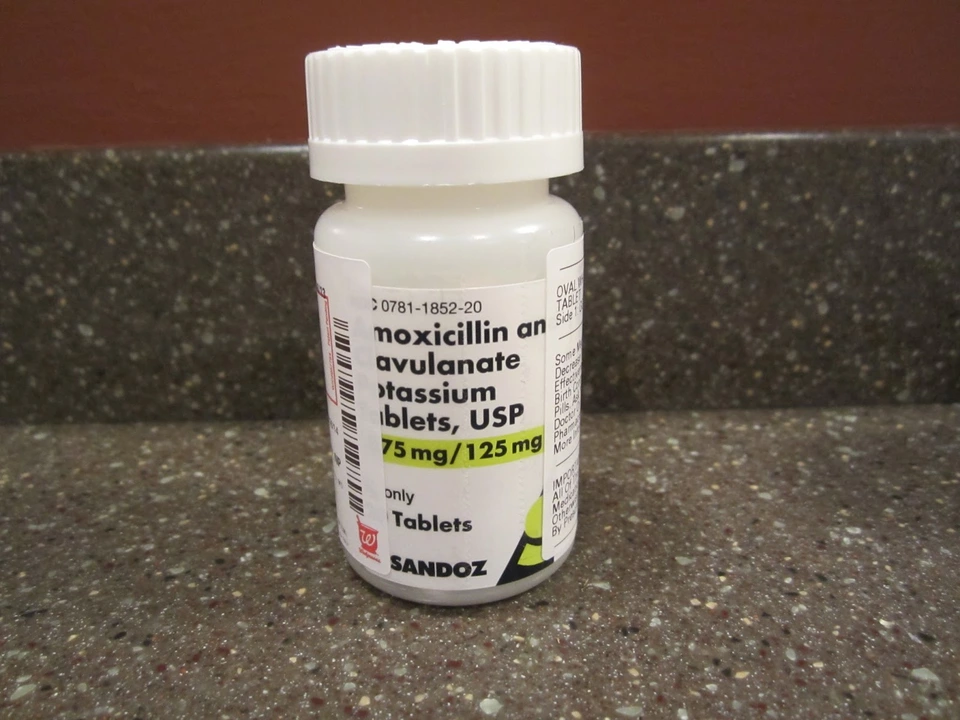Health and Medicine: Practical drug guides, side effects, and treatment tips
A single pill can fix a problem — or cause a new one if you use it wrong. This page collects clear, no-nonsense articles about common medicines, how they work, and what to watch for. You’ll find practical advice on antibiotics, steroids, NSAIDs, eye drops after surgery, and more. If you want quick answers before you talk with a doctor, start here.
What you’ll find in these guides
Want a deep look at a specific drug? Read our Prednisolone guide for uses, dosing, and side effects so you know when steroids help and when they raise risks. If you’re weighing options for bacterial infections, the Vibramycin alternatives piece breaks down nine other antibiotics with their pros and cons. For antibiotic resistance and how to fight it, the Clavulanic Acid post explains why beta-lactamase inhibitors matter.
Curious about pain medicines? Our Celecoxib comparison shows how this COX-2 inhibitor stacks up against other NSAIDs on pain relief and stomach or heart risks. We also cover niche but important topics: how reperfusion injury may trigger autoimmune reactions, and what that could mean if you or a loved one faces surgery. For eye surgery patients, the Loteprednol article explains what to expect from post-op drops, common reactions, and when to call your surgeon. And if you have strep throat, the Azithromycin piece explains how it works, treatment length, and why finishing the course matters.
How to use this information safely
First, treat these guides as clear background, not a prescription. Use them to ask better questions at your appointment. Check the dosing sections before you start a medicine and compare side-effect lists if you’re on other drugs. If a guide mentions interactions or conditions that match yours — like diabetes, high blood pressure, pregnancy, or immune issues — flag that for your prescriber.
Quick, concrete tips: always confirm the correct dose and duration; finish prescribed antibiotics unless your doctor says stop; expect steroid side effects like mood changes or sleep trouble and report severe reactions right away; use eye drops exactly as prescribed after surgery and don’t skip follow-ups. Keep a list of all medicines and supplements to avoid hidden interactions.
If something feels off — new rash, breathing trouble, sudden pain, or strange mood shifts — seek medical help. Use the search on this site to find related posts or the tags on each article to read more on a topic. We aim to make medical info plain and practical so you can ask smarter questions and stay safer.

Hepatorenal Syndrome: Understanding Kidney Failure in Advanced Liver Disease
Jan 4 2026 / Health and MedicineHepatorenal syndrome is a life-threatening kidney failure caused by advanced liver disease, not direct kidney damage. Learn how it develops, why it's often missed, and what treatments-including transplant-can save lives.
VIEW MORE
Amoeba Infections: Real Stories Behind a Growing Global Health Threat
Sep 24 2025 / Health and MedicineExplore the human faces of amoeba infections, the pathogens behind them, how they spread, current treatments and what the world is doing to stop the rise of this global health crisis.
VIEW MORE
Prednisolone: Complete Guide to Uses, Risks, and Safe Dosage
May 28 2025 / Health and MedicineIf you or someone you know needs prednisolone, there’s a lot to understand before you start. This article breaks down what prednisolone is, how it works, when doctors prescribe it, common side effects, and smart tricks to make your treatment easier. Get the full picture before you swallow your first tablet.
VIEW MORE
Alternatives to Vibramycin: A Look at Options You Can Count On
Mar 27 2025 / Health and MedicineExploring alternatives to Vibramycin can offer new solutions for those battling bacterial infections. This guide examines nine options, from Amoxicillin/Clavulanate to Minocycline, highlighting their pros and cons. Whether you're dealing with skin infections or respiratory troubles, these alternatives might offer the right balance between effectiveness and side effects.
VIEW MORE
Clavulanic Acid: Combating Antibiotic Resistance Effectively
May 13 2024 / Health and MedicineThis article explores the role of clavulanic acid in addressing the growing challenge of antibiotic resistance. Discover how this compound works, its history, and practical uses. Learn about its significance in modern medicine and gain insights into future potential developments.
VIEW MOREHow Celecoxib compares to other nonsteroidal anti-inflammatory drugs (NSAIDs)
Sep 21 2023 / Health and MedicineAs an avid follower of medicine, I've spent some time learning about Celecoxib and other widely used nonsteroidal anti-inflammatory drugs (NSAIDs). In this post, I'd like to discuss how Celecoxib measures up against other NSAIDs in pain management. We'll dive into its efficacy, safety profiles, and side effects. It's interesting to discover how one drug can differ from the others in several ways. Join me on this fascinating journey exploring the complex world of NSAIDs.
VIEW MORE
The Connection Between Reperfusion Injury and Autoimmune Disorders
Jul 6 2023 / Health and MedicineIn my recent research, I've found a fascinating connection between reperfusion injury and autoimmune disorders. Reperfusion injury, which occurs when blood supply returns to tissue after a period of ischemia or lack of oxygen, can trigger an inflammatory response. This can, in turn, lead to autoimmune disorders where the body's immune system attacks its own cells. Simply put, the damage caused by reperfusion can confuse our immune system, causing it to misfire. It's a complex topic, but understanding it could lead to breakthroughs in treating various autoimmune conditions.
VIEW MORE
Post-Operative Treatment with Loteprednol: What to Expect
May 11 2023 / Health and MedicineRecently, I underwent a surgery and my doctor prescribed Loteprednol for post-operative treatment. I discovered that Loteprednol is a corticosteroid eye drop used to reduce inflammation and pain after eye surgeries. The treatment typically lasts for about two weeks and it's essential to follow the prescribed dosage and schedule. I experienced minimal side effects, such as mild burning or itching, but overall, Loteprednol played a significant role in my recovery process. It's important to consult with your doctor if you have any concerns or questions about using Loteprednol post-surgery.
VIEW MORE
How azithromycin can help treat strep throat
Apr 27 2023 / Health and MedicineAs a blogger, I recently discovered how azithromycin can help treat strep throat. Azithromycin, a type of antibiotic, works by stopping the growth of bacteria causing the infection. It's a popular choice because it's taken for a shorter duration and has fewer side effects than other antibiotics. Many people find relief within 24 hours of starting the medication, but it's crucial to complete the entire course to prevent reinfection or antibiotic resistance. Overall, azithromycin provides a convenient and effective option for treating strep throat, getting us back to feeling better quickly.
VIEW MORE